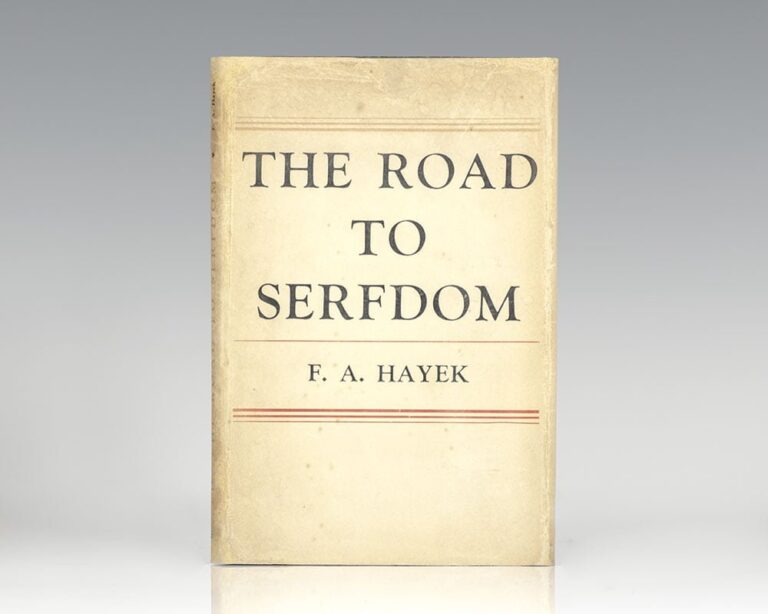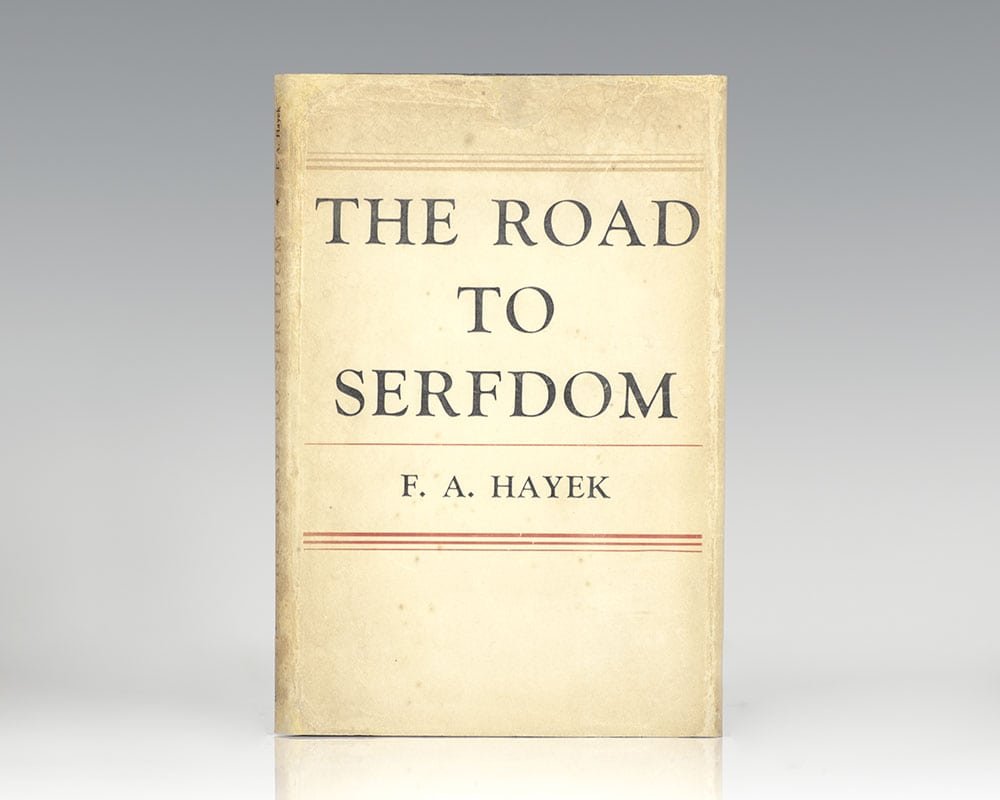F.A. Hayek, The Road to Serfdom, 1944
Friedrich Hayek was an Austrian-born economist best known for his defence of classical liberalism. He had a highly distinguished academic career which lasted almost forty years and included stints at the London School of Economics, the University of Chicago, and the University of Freiburg. In 1974 he jointly won the Nobel Prize for Economic Science, in 1984 he was made a Companion of Honour by Queen Elizabeth II, and in 1991 he received the Presidential Medal of Freedom from George H.W. Bush.
The Road to Serfdom is Hayek’s most famous work, having sold more than 2.25 million copies. In it he advocates for ‘the guiding principle, that a policy of freedom for the individual is the only truly progressive policy’, criticising central economic planning as something that will inevitably lead to the growth of a controlling and ultimately totalitarian state. Hayek maintained that Hitler’s National-Socialism was a form of socialism, and that dictatorship would be the inevitable result of any attempt to overtly direct society, even towards ostensibly positive, rather than fascist, ends.
The book was a timely contribution to political and economic debate at a time when Western plans for post-war reconstruction proposed a significant increase in the role of the state. These debates were very important in Australia, and it is thus of considerable historical significance that Menzies not only owned two copies of The Road to Serfdom, but that his original shows signs of intensive use including ‘some underlining and lines in margins in pencil throughout’.
David Kemp’s A Liberal State argues that Hayek’s writings were influential in post-war Australia, and it quotes Menzies’s speech to the Non-Labor Unity Conference which helped to form the Liberal Party in October 1944:
‘We recognise that in the post-war economy there will be room for much more thought and planning than ever before. But if a planned economy means a perpetuation of government controls, then it will unquestionably lead to a totalitarian system. As we know, authority tends to feed upon itself. Certain temporary Government controls will no doubt be needed, but in the long run the function of Government should be to guide and encourage industry to do its own planning in the light of its own expert knowledge and experience. In a vision of the future, therefore, I see the individual, and his encouragement and recognition as the prime motive force for the building of a better world.’
While accepting a significant degree of Keynesian intervention, Menzies thus adopted Hayek’s warning on the threat that intervention could pose and insisted on the primacy of the individual. Kemp’s emphasis on Hayek has been questioned by Stuart Macintyre, who maintains that ‘although a local edition of Friedrich Hayek’s The Road to Serfdom appeared shortly after its publication in Britain in 1944, to claim it exercised “a profound influence” is gross exaggeration’. Menzies’s original copy suggests that it was arguably a ‘profound’ or at least significant influence on perhaps the central figure of the post-war era, and can therefore be used as evidence in what is an important historical debate.
You might also like...
Sign up to our newsletter
Sign up for our monthly newsletter to hear the latest news and receive information about upcoming events.



